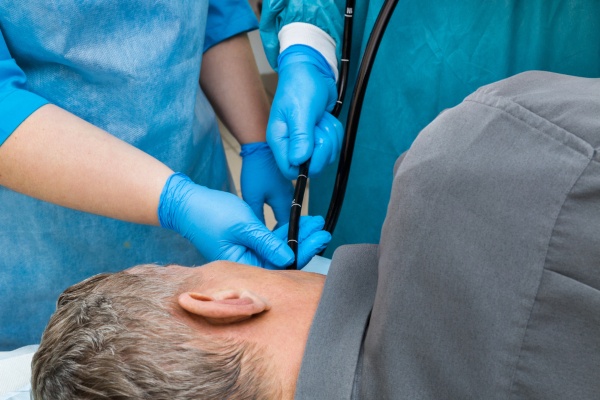
Understanding the Upper Endoscopy Procedure
So, your doctor has recommended an upper endoscopy—now what? At Rocky Mountain Gastroenterology, we strive to provide our patients with the gold standard in services and all the relevant information about our procedures. Our team will walk you through every step of an upper endoscopy and make sure to put all of your concerns to rest. We’ve seen numerous patients across Colorado, offering them a comfortable and informative experience. Get more details on the upper endoscopy procedure.
What Is an Upper Endoscopy?
An upper endoscopy is a procedure we often use to examine the upper digestive system (esophagus, stomach, and the first part of the small intestine) and look for any abnormalities. With a tiny camera attached to the end of a flexible tube, your gastroenterologist will be able to see signs of Crohn’s disease, cancer, and other conditions that require prompt treatment.
Why Would I Need an Upper Endoscopy?
First and foremost, an endoscopy of the upper GI is an important diagnostic tool. However, this procedure may also be used to treat certain conditions affecting the digestive system. Our team often recommends an upper endoscopy for the following purposes:
- To learn more about symptoms, such as bleeding, difficulty swallowing, abdominal pain, unexplained weight loss, and nausea
- To collect tissue samples, test for relevant conditions, and make a diagnosis
- To treat conditions affecting the digestive system, such as polyps, bleeding, and a narrow esophagus
Preparing for an Upper Endoscopy
As the date for your procedure approaches, it’s crucial to take all the appropriate steps to prepare. Our team will provide you with specific instructions regarding upper endoscopy prep, but in general, you can expect to take the following precautions:
- Give Consent: Be sure to ask us all your questions in the days leading up to the procedure. You will likely need to sign a consent that gives us permission to perform the procedure, and we want you to be 100% informed and comfortable.
- Fasting: Because your stomach must be empty to complete this procedure, we ask that you refrain from eating or drinking in the eight hours leading up to your appointment.
- Stop Certain Medications: Let us know which medications you take. We often instruct patients to stop taking blood thinners and give them specific instructions on managing chronic conditions such as diabetes or heart disease.
- Disclose Medical History: Always tell us any relevant medical concerns you may have. Let us know if you have a history of bleeding disorders, heart disease, or allergies to certain medicines. We also need to know if you are pregnant or may be pregnant.
Recovery Only Takes a Few Days
Luckily, recovering from an upper endoscopy usually only takes a day or two. Because patients will be sedated during the procedure, it’s essential to have someone drive you home afterward. While you might feel perfectly alert, your memory and reaction times may be affected by the sedative. We recommend not making any important decisions until at least 24 hours have passed. Most patients need at least one day off work following an upper endoscopy. Common side effects include bloating, gas, cramping, and sore throat, but these usually improve on their own. If you have any concerns, don’t hesitate to call Rocky Mountain Gastroenterology.
Read Up on the Risks and Complications
While unlikely, complications after an upper endoscopy are not unheard of. Nevertheless, it’s vital to be familiar with the potential complications and know when to contact your doctor. If you notice any of the following symptoms in the hours or days after an upper endoscopy, contact us right away:
- Fever
- Bleeding or swelling from the IV site
- Severe abdominal pain
- Chest pain
- Difficulty swallowing
- Bloody stool
- Shortness of breath
- Vomiting
- Stomach pain
- Worsening throat or chest pain
Ask Us About This Procedure Today
Do you have more questions about the upper endoscopy procedure? Our team would be happy to address your concerns and make sure you have the full picture before scheduling one of these tests. Rocky Mountain Gastroenterology is dedicated to bringing patients an exceptional experience, no matter the circumstances. Contact us today for more information about this procedure.
Go back